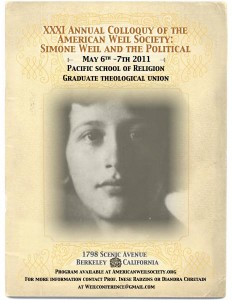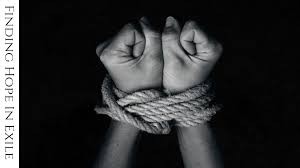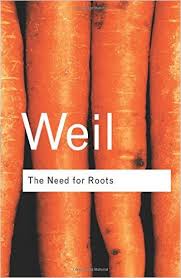As is the case with any profession, the life of an academic includes some great and some not-so-great features. After twenty-five years of being a college professor, here’s a brief list:
Great:
• Sabbatical
• Team-teaching with colleagues
• Planning courses
• Writing
• Beer with fellow teachers on Friday afternoons
Not So Much:
• Being in a dysfunctional department
• Trying to get what you have written published
• Technology in the classroom
And academic conferences. Especially academic conferences
I have written in the past about my dislike of academic conferences. Conference papers are the bread-and-butter of the academic life when climbing the tenure and promotion ladder, but I’ve never been a fan. A lot of posturing, name-dropping, networking and having papers read at you. Not to mention overheated and ugly seminar rooms along with stale pastries and lukewarm coffee. I do not learn much just by listening to someone—I’m more a visual and tactile learner—but traditionally that’s been the way things go at conferences.  Of course I usually forget that when I present a paper, I’m expecting my audience to appreciate mine far more than I enjoy theirs.
Of course I usually forget that when I present a paper, I’m expecting my audience to appreciate mine far more than I enjoy theirs.
Fortunately I have not had to work the academic conference circuit vigorously since I earned promotion to full professor almost fifteen years ago. There is, however, one group of academics that I enjoy gathering with annually for a conference—the American Weil Society. If you read this blog regularly or even occasionally, you know that Simone Weil shows up on a semi-regular basis. I’ve had an intellectual affair with this strange woman from the first half of the twentieth century for at over fifteen years now (Jeanne calls Simone my mistress), a connection that has produced a book, several articles, and a paper at the Weil colloquy almost every year.
I have attended the annual Weil Society colloquy just about every year for the past couple of decades; we have hosted the Weil colloquy twice in the past ten years here at Providence College. There are a solid two dozen or so Weil scholars from North America who attend just about every colloquy. The theme of this year’s colloquy is  “Hope in Exile,” an evocative topic that prompted me to send in a brief proposal. The proposal was accepted, so now I have to write the paper. That’s one of the great things about a blog—it provides me with an opportunity to run my thoughts past intelligent people before I am responsible for them in person.
“Hope in Exile,” an evocative topic that prompted me to send in a brief proposal. The proposal was accepted, so now I have to write the paper. That’s one of the great things about a blog—it provides me with an opportunity to run my thoughts past intelligent people before I am responsible for them in person.
As I searched my notes and Simone Weil texts the other day for “hope” references, I was surprised to find that she doesn’t explicitly discuss the topic very often. And yet, the theme of how to avoid despair in the middle of a world that seems determined to drive us toward it on a daily basis is a thread that winds through most of her writing. In her final work,  The Need for Roots, Weil considers why despair is not a necessity.
The Need for Roots, Weil considers why despair is not a necessity.
If pure good were never capable of producing on this earth true greatness in art, science, theoretical speculation, public enterprise, if in all these spheres there were only false greatness, if in all these spheres everything were despicable, and consequently condemnable, there would be no hope at all for the affairs of this world; no possible illumination of this world by the other one. But it is not so. (Emphasis mine)
This reminded me of something I just read the other day from Marilynne Robinson:
Cultural pessimism is always fashionable, and, since we are human, there are always grounds for it. It has the negative consequence of depressing the level of aspiration, the sense of the possible. And from time to time it has the extremely negative consequence of encouraging a kind of somber panic, a collective dream-state in which recourse to terrible remedies is inspired by delusions of mortal threat.
One encounters this sort of “somber panic” and such proposed “terrible remedies” everywhere one turns these days. When everything is pushing intelligent people toward cynicism and/or despair, what reasons are there, if any, to cultivate hope? The cynic is likely to agree with Violet, dowager countess of  Downton Abbey, who says that “hope is a tease to keep us from accepting reality.” The hopeful person might counter with something like what I heard Maria Popova say on NPR’s “On Point” the other day: “Cynicism is the sewage of the soul.” My guess is that the truth lies somewhere between these extremes.
Downton Abbey, who says that “hope is a tease to keep us from accepting reality.” The hopeful person might counter with something like what I heard Maria Popova say on NPR’s “On Point” the other day: “Cynicism is the sewage of the soul.” My guess is that the truth lies somewhere between these extremes.
Simone Weil’s insight is a good place to start. If it is actually the case that human beings are incapable of producing anything of value, if it is true that even the best of human endeavors are polluted by falsity and worthy of condemnation, then cynicism or despair are the reasonable order of the day. There is no reason other than naïveté to hope for anything other than a continuation of mediocrity, violence, and death until we finally manage to snuff ourselves out. But after setting the stage for such despair, Weil opens the window a crack with just one sentence: But it is not so.  Marilynne Robinson concludes her comments on the attractiveness of cultural pessimism with a similar sentiment.
Marilynne Robinson concludes her comments on the attractiveness of cultural pessimism with a similar sentiment.
When panic on one side is creating alarm on the other, it is easy to forget that there are always as good grounds for optimism as for pessimism—exactly the same grounds, in fact—that is, because we are human . . . To value one another is our greatest safety, and to indulge in fear and contempt is our gravest error.
The stakes could not possibly be higher. As I begin working on this with the upcoming conference in mind, I start with the premise that what really needs to be sorted out is the relationship between critical thinking and hope, since critical thinking without hope is cynicism, but hope without critical thinking is naïveté. Our contemporary challenge is to find a place between the  Scylla of cynicism and the Charybdis of naïveté, seeking to build a life in that space because finding fault and feeling hopeless about improving our situation produces resignation of which cynicism is a symptom as well as a futile self-protection mechanism. And perhaps it is worth taking note of Simone Weil’s suggestion that the illumination of this world by “the other one” might be a reason to hope. What is that other world? How might a passageway for mutual illumination be opened? Stay tuned—I welcome your ideas and contributions!
Scylla of cynicism and the Charybdis of naïveté, seeking to build a life in that space because finding fault and feeling hopeless about improving our situation produces resignation of which cynicism is a symptom as well as a futile self-protection mechanism. And perhaps it is worth taking note of Simone Weil’s suggestion that the illumination of this world by “the other one” might be a reason to hope. What is that other world? How might a passageway for mutual illumination be opened? Stay tuned—I welcome your ideas and contributions!














